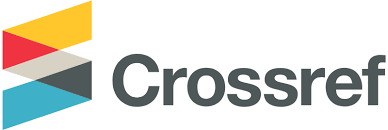Peran Mediasi Perilaku Eksplorasi Karier dalam Pengaruh Dukungan Teman terhadap Adaptabilitas Karier Mahasiswa
Abstrak
Berbagai tantangan yang perlu dihadapi dengan adanya perubahan revolusi industri 4.0 yang membuat 75-375 juta pekerja mengalami pergeseran profesi. Bahkan, banyak profesi manapun terkena imbasnya karena digantikan dengan mesin-mesin. Selaras dengan perkembangan karier pada mahasiswa yang perlu untuk mengeksplor mengenai karier mereka. Hal tersebut menjadi tantangan terendiri bagi mahasiswa untuk beradaptasi dalam menghadapi perubahan revolusi ini. Tujuan penelitian ini untuk menguji peran perilaku eksplorasi karier terhadap pengaruh dukungan teman pada adaptabilitas karier mahasiswa tingkat akhir. Partisipan penelitian berjumlah 538 mahasiswa di Jakarta, Bogor, Depok, Tanggerang, dan Bekasi (JABODETABEK). Pengambilan data dilakukan dengan metode convenience sampling. Penelitian ini menggunaan tiga alat ukur yaitu Career Related Peer Support (Zhang & Huang, 2018), Career Exploration Survey (Salim & Preston, 2019) dan Career Adapt-Ability Scale (Sulistiani, Suminar, dan Hendriani, 2018). Pengolahan data menggunakan simple mediation model 4 PROCESS for SPPS by Hayes. Hasil analisis mediasi menjelaskan bahwa dukungan teman mempengaruhi adaptabilitas karier pada mahasiswa tingkat akhir melalui perilaku eksplorasi karier secara penuh, dengan nilai indirect effect sebesar 0,1347. Mahasiswa yang mempersepsikan dukungan teman terkait karier cenderung memunculkan perilaku mencari informasi, mengikuti kegiatan terkait karier (magang, seminar, dll), dan meninjau kembali informasi yang mereka dapat yang berdampak pada peningkatkan kemampuan adaptabilitas karier dalam menghadapi berbagai tantangan untuk menghadapi transisi kuliah-ke-kerja.
Kata Kunci
Teks Lengkap:
PDFReferensi
Arnett, J. (2015). Emerging adulthood (2nd ed.). New York, New York: Oxford University Press.
Ataç, L., Dirik, D., & Tetik, H. (2017). Predicting career adaptability through self-esteem and social support: A research on young adults. International Journal For Educational And Vocational Guidance, 18(1), 45-61. doi: 10.1007/s10775-017-9346-1
Blustein, D. (1997). A Context-Rich Perspective of Career Exploration Across the Life Roles. The Career Development Quarterly, 45(3), 260-274. doi: 10.1002/j.2161-0045.1997.tb00470.x
Blustein, D. L., & Flum, H. (1999). A self-determination perspective of interests and exploration in career development. In M. L. Savickas & A. R. Spokane (Eds.), Vocational interests: Meaning, measurement, and counseling use (p. 345–368). Davies-Black Publishing.
Coetzee, M., & Harry, N. (2014). Gender and hardiness as predictors of career adaptability: an exploratory study among Black call centre agents. South African Journal Of Psychology, 45(1), 81-92. doi: 10.1177/0081246314546346
Creed, P. A., Fallon, T., & Hood, M. (2009). The relationship between career adaptability, person and situation variables, and career concerns in young adults. Journal of Vocational Behavior, 74(2), 219–229. doi: 10.1016/j.jvb.2008.12.004
Creed, P., & Hughes, T. (2012). Career Development Strategies as Moderators Between Career Compromise and Career Outcomes in Emerging Adults. Journal Of Career Development, 40(2), 146-163. doi: 10.1177/0894845312437207
Deci, E. L., & Ryan, R. M. (1985). Intrinsic motivation and self-determination in human behavior. New York: Plenum
Ebenehi, A., Rashid, A., & Bakar, A. (2016). Predictors of Career Adaptability Skill among Higher Education Students in Nigeria. International Journal For Research In Vocational Education And Training, 3(3), 212-229. doi: 10.13152/ijrvet.3.3.3
Felsman, D. E., & Blustein, D. L. (1999). The role of peer relatedness in late adolescent career development. Journal of Vocational Behavior, 54(2), 279–295. doi: 10.1006/jvbe.1998.1664
Geerlings, P. M., Cole, H., Batt, S., & Martin-Lynch, P. (2016). Peer Assisted Study Sessions (PASS): Does gender matter? Journal of Peer Learning, 9, 10–25.
Ghosh, A., & Fouad, N. (2017). Career Adaptability and Social Support Among Graduating College Seniors. The Career Development Quarterly, 65(3), 278-283. doi: 10.1002/cdq.12098
Ginevra, M., Nota, L., & Ferrari, L. (2015). Parental Support in Adolescents' Career Development: Parents' and Children's Perceptions. The Career Development Quarterly, 63(1), 2-15. doi: 10.1002/j.2161-0045.2015.00091.x
Greenhaus, J., & Callanan, G. (2006). Encyclopedia of career development (2nd ed.). Thousand Oaks, Calif.: Sage Publications.
Guan, P., Capezio, A., Restubog, S., Read, S., Lajom, J., & Li, M. (2016). The role of traditionality in the relationships among parental support, career decision-making self-efficacy and career adaptability. Journal Of Vocational Behavior, 94, 114-123. doi: 10.1016/j.jvb.2016.02.018
Guan, Y., Wang, F., Liu, H., Ji, Y., Jia, X., & Fang, Z. et al. (2015). Career-specific parental behaviors, career exploration and career adaptability: A three-wave investigation among Chinese undergraduates. Journal Of Vocational Behavior, 86, 95-103. doi: 10.1016/j.jvb.2014.10.007
Han, H., & Rojewski, J. (2014). Gender-Specific Models of Work-Bound Korean Adolescents’ Social Supports and Career Adaptability on Subsequent Job Satisfaction. Journal Of Career Development, 42(2), 149-164. doi: 10.1177/0894845314545786
Hayes, A. (2013). Introduction to mediation, moderation, and conditional process analysis. New York: The Guilford Press.
Hlad′o, P., Kvasková, L., Ježek, S., Hirschi, A., & Macek, P. (2019). Career Adaptability and Social Support of Vocational Students Leaving Upper Secondary School. Journal Of Career Assessment, 28(3), 478-495. doi: 10.1177/1069072719884299
Hou, C., Wu, Y., & Liu, Z. (2019). Career decision-making self-efficacy mediates the effect of social support on career adaptability: A longitudinal study. Social Behavior and Personality: An international journal, 47(5), e8157.
Hirschi, A. (2009). Career adaptability development in adolescence: Multiple predictors and effect on sense of power and life satisfaction. Journal of Vocational Behavior, 74, hlm. 145-155. doi:10.1016/j.jvb.2009.01.002
Indianti, W. (2015). Dukungan Sosial dan Regulasi Diri dalam Belajar untuk Membangun Adaptabilitas Karier pada Mahasiswa Baru Universitas Indonesia. Disertasi (unpublished). D e p o k : F a k u l t a s P s i k o l o g i Universitas Indonesia. Retrieved from http://lib.ui.ac.id/file?file=digit al/2016-4/20416090-D2087- Wahyu%20Indianti.pdf
Khasawneh, S. (2010). Factors Influencing the Career Planning and Development of University Students in Jordan. Australian Journal Of Career Development, 19(2), 41-48. doi: 10.1177/103841621001900206
Ketterson, T., & Blustein, D. (1997). Attachment Relationships and the Career Exploration Process. The Career Development Quarterly, 46(2), 167-178. doi: 10.1002/j.2161-0045.1997.tb01003.x
Kiefer, S., Alley, K., & Ellerbrock, C. (2015). Teacher and Peer Support for Young Adolescents’ Motivation, Engagement, and School Belonging. RMLE Online, 38(8), 1-18. doi: 10.1080/19404476.2015.11641184
McKinsey, M. (2017). A future that works: automation, employment, and productivity. San Fransisco: Research Insight Impact.
Koen, J., Klehe, U., & Van Vianen, A. (2012). Training career adaptability to facilitate a successful school-to-work transition. Journal Of Vocational Behavior , 81 (3)395-408. doi: 10.1016/j.jvb.2012.10.003
Konstam, V., Celen-Demirtas, S., Tomek, S., & Sweeney, K. (2015). Career Adaptability and Subjective Well-Being in Unemployed Emerging Adults. Journal Of Career Development, 42(6), 463-477. doi: 10.1177/0894845315575151
Kracke, B. (2002). The role of personality, parents and peers in adolescents career exploration. Journal Of Adolescence, 25(1), 19-30. doi: 10.1006/jado.2001.0446
Marshall, E., & Butler, K. (2014). School-to-Work Transitions in Emerging Adulthood. Oxford Handbooks Online. doi: 10.1093/oxfordhb/9780199795574.013.27
Martin, A., Jones, E., & Callan, V. (2006). Status differences in employee adjustment during organizational change. Journal Of Managerial Psychology, 21(2), 145-162. doi: 10.1108/02683940610650758
Masuna, K. (2015). Hubungan Antara Locus of Control dan Adaptabilitas Karir Pada Lulusan Sarjana Universitas Indonesia yang Baru Bekerja (Fresh Graduates). Skripsi. Depok: Fakultas Psikologi Universitas Indonesia.
Menpan. (2019). Diakses pada tanggal 23 Februari 2020, dari https://menpan.go.id/site/
Menristekdikti Minta Perguruan Tinggi Siap Akan Kemunculan Profesi Baru di Era Revolusi Industri 4.0 | LLDIKTI 1 - Lembaga Layanan Pendidikan Tinggi Wilayah I Sumatra Utara. (2020). Diakses pada tanggal 23 Februari 2020, dari https://lldikti1.ristekdikti.go.id/details/apps/1614
MIKTI dan Teknopreneur. (2018). Mapping Dan Database Startup Indonesia 2018. Jakarta: Badan Ekonomi Kreatif RI Diakses pada http://www.bekraf.go.id/ downloadable/pdf_file/1812634-mapping-database-startup-indonesia-2018. pdf diakses tanggal 4 Agustus 2020
Murphy, K., Blustein, D., Bohlig, A., & Platt, M. (2010). The College-to Career Transition: An Exploration of Emerging Adulthood. Journal Of Counseling & Development , 88 (2), 174-181.
Risdianto, E. (2019). Analisis pendidikan Indonesia di era revolusi industri 4.0. 1-16. https://www.researchgate.net/publication/332423142 di akses Juni 2020.
Ryan, R., & Deci, E. (2000). Self-determination theory and the facilitation of intrinsic motivation, social development, and well-being. American Psychologist, 55(1), 68-78. doi: 10.1037/0003-066x.55.1.68
Salim, R., & Preston, M. (2019). Parenting Styles Effect on Career Exploration Behavior in Adolescence: Considering Parents and Adolescent Gender. Humaniora, 10(3), 249. doi: 10.21512/humaniora.v10i3.5803
Savickas, M. L. (1997). Career adaptability: An integrative construct for life-span, life-space theory. The Career Development Quarterly, 45, 247–259. doi: 10.1002/j.2161-0045.1997.tb00469.x
Savickas, M. L., & Porfeli, E. J. (2012). Career adapt-abilities scale: Construction, reliability, and measurement equivalence across 13 countries. Journal of Vocational Behavior, 80, 661–673.
Stumpf, S., Colarelli, S., & Hartman, K. (1983). Development of the Career Exploration Survey (CES). Journal Of Vocational Behavior, 22(2), 191-226. doi: 10.1016/0001-8791(83)90028-3
Steinberg, L., Dornbusch, S., & Brown, B. (1992). Ethnic differences in adolescent achievement: An ecological perspective. American Psychologist, 47(6), 723-729. doi: 10.1037/0003-066x.47.6.723
Sulistiani, W., Suminar, D. R., & Hendriani, W. (2018). The career adapt-abilities scale- Indonesian form: Psychometric (Vol. 4, pp. 1–9). TIIKM Publishing. doi: 10.17501/24246700.2018.4201
Super, Donald E., Starishevsky, Reuben, Mattin, Norman, and Jordaan, Jean Pierre. (1963). Career Development: Self Concept Theory. Essays In Vocational Development., 94 P.,
Super, D. E. (1980). A life-span, life-space approach to career development. Journal Of Vocational Behavior, 16(3), 282-298. doi: 10.1016/0001-8791(80)90056-1
Super, D. E. (1990). A life-span, life-space approach to career development. In D. Brown & L. Brooks, The Jossey-Bass management series and The Jossey-Bass social and behavioral science series. Career choice and development: Applying contemporary theories to practice (p. 197–261). Jossey-Bass
Turkan, S., De Oliveira, Luciana, C., Lee, O., Phelps, G. (2014). Proposing a Knowledge Base for Teaching Academic Content to English Language Learners: Disciplinary Linguistic Knowledge. Education Resources Information Center (ERIC). EJ1020240
Wang, Z., & Fu, Y. (2015). Social Support, Social Comparison, and Career Adaptability: A Moderated Mediation Model. Social Behavior And Personality: An International Journal , 43 (4), 649-659. doi: 10.2224/sbp.2015.43.4.649
Wentzel, K., Muenks, K., McNeish, D., & Russell, S. (2017). Peer and teacher supports in relation to motivation and effort: A multi-level study. Contemporary Educational Psychology, 49, 32-45. doi: 10.1016/j.cedpsych.2016.11.002
Werang, B.R. (2018), “Investigating students’ learning motivation in Indonesian higher institution: A study from Musamus University of Merauke, Papua”, International Journal of Development and Sustainability, Vol. 7 No. 3, pp. 1038- 1048.
Yousefi, Z., Abedi, M., Baghban, I., Eatemadi, O., & Abedi, A. (2011). Personal and Situational Variables, and Career Concerns: Predicting Career Adaptability in Young Adults. The Spanish Journal Of Psychology, 14(1), 263-271. doi: 10.5209/rev_sjop.2011.v14.n1.23
Zacher, H. (2015). The Importance of a Precise Definition, Comprehensive Model, and Critical Discussion of Successful Aging at Work. Work, Aging And Retirement, 1(4), 320-333. doi: 10.1093/workar/wav020
Zhang, H., & Huang, H. (2018). Decision-making self-efficacy mediates the peer support-career exploration relationship. Social Behavior and Personality, 46(3), 485–498. doi: 10.2224/sbp.6410
DOI: https://doi.org/10.24198/jpsp.v4i3.29241
Refbacks
- Saat ini tidak ada refbacks.
##submission.copyrightStatement##
##submission.license.cc.by-sa4.footer##
Jurnal ini terideks di:













